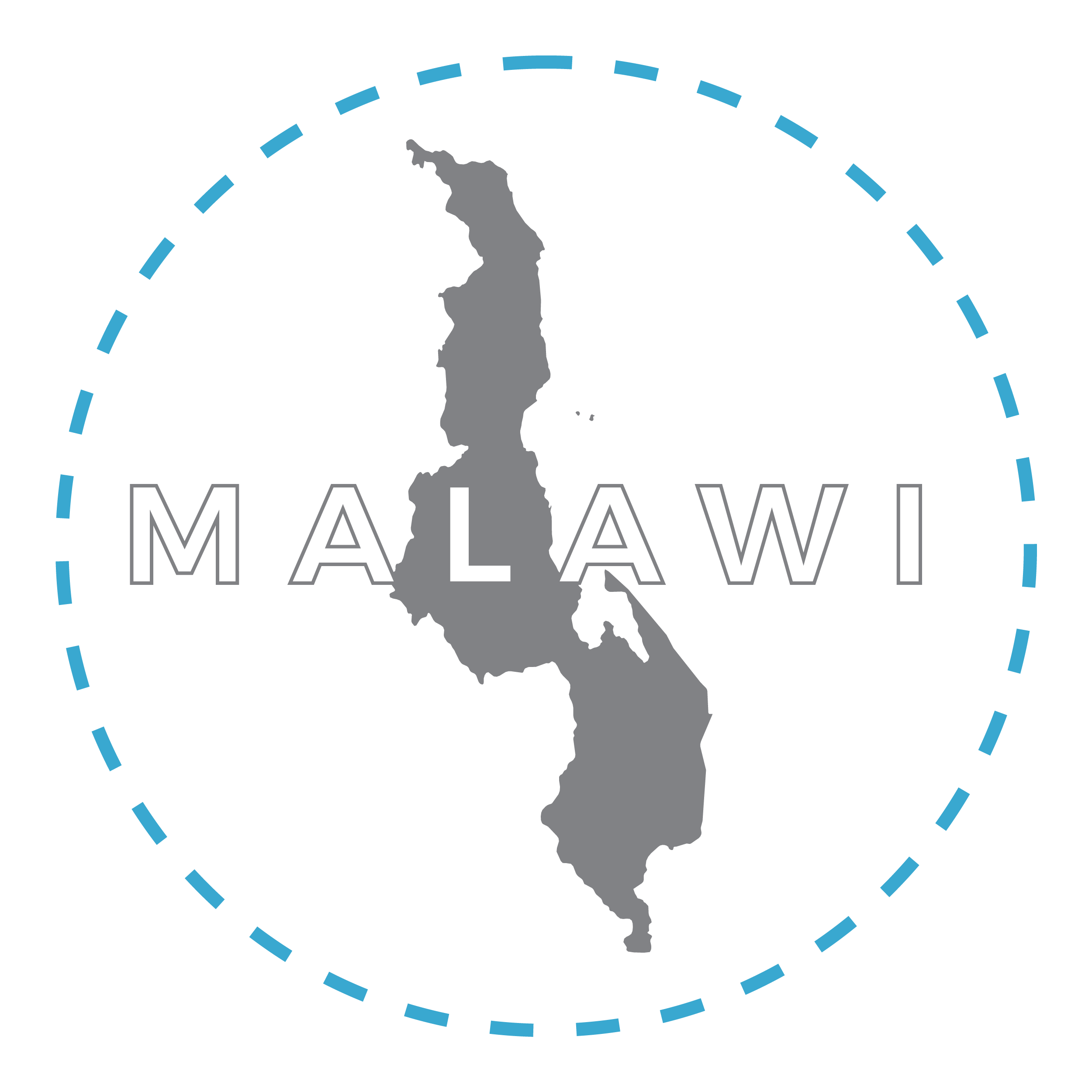LOCATIONS
The Dominican Republic
The Dominican Republic (DR) is on the same island as Haiti, near Cuba, in the Caribbean. Santo Domingo is the capital. Its population is nearly 11 million and the official language is Spanish.
In 2001, David Pither met William Hunter of Medical Ministries International and discussed the possibility of EARS Inc. helping MMI to set up a soundproof booth in the DR and train local health workers in audiometry. Later that year, David trained two young men at the Dr Elias Santana Hospital in Santo Domingo and began setting up a hearing clinic, including an earmould-making laboratory and a supply of solar-powered body worn hearing aids.
The following year, Sydney Audiologist Donna Carkeet visited the Dominican Republic to provide further training and assistance to the project. She decided to move to the Dominican Republic in 2005 for four years, to help realise the longer term goals of the project which included the establishment of a high quality hearing clinic and technical repair centre, as well as developing a two year Audiometric Technician’s Course and a four year Audiometry Bachelor’s Degree. As the native language of DR is Spanish, development of the training programs involved Donna learning this language so she could write the course materials and teach in Spanish.
By 2014 - seven years after it was established - the project in Dominican Republic was self-sustainable. Three hearing clinics are now running under the management of the local partner, and a former graduate of the audiology program is now clinical director of the clinics.
After devoting seven years to establishing and running a high-quality audiology service and training program, Donna moved back to Australia from the Dominican with her adopted son late in 2013. She continues to provide long distance assistance to her graduates who are working in Dominican Republic as well as Haiti, Fiji and Ethiopia.
Malawi, Africa
Known as ‘The Warm Heart of Africa’, Malawi is a small sub-Saharan nation in south eastern Africa, primarily reliant on subsistence agriculture, and ranked among the top 10 poorest countries in the world. It has a population of 19 million, and Lilongwe is the Capital.
In 2008, David Pither spent five days in Malawi where he ran a three-day intensive ear mould manufacturing workshop in the SOS Community at Lilongwe. He personally donated the equipment to set up two ear mould laboratories, one in Lilongwe (Central Region) and the second in the Southern Region capital of Blantyre. Prior to this, impressions had to be sent out of the country and it took up to six months for the ear moulds to return, often fitting poorly due to the delay from impression taking to manufacturing. The new equipment and trained staff meant a custom hard acrylic ear mould could be made within two hours of an ear impression being taken.
In early 2010, married couple Peter and Rebecca Bartlett were accepted as missionary audiologists with African Bible Colleges (ABC) in Lilongwe, being sent by EARS Inc. They arrived in August 2010. There is a Bible college, an ABC Christian Academy where their three young girls attended and an established hospital clinic to work in. There were no audiologists in the country at that time. The local community and country had a desperate need for a permanent audiology service.
Their goals were to establish a sustainable hearing clinic and ear mould manufacturing laboratory and to establish an audiometry training course, based on Donna Carkeet’s model in the Dominican Republic.
After needing to find local interpreters for a visiting audiology team in 2012, the EARS Inc project in Malawi then selected six ABC students from the twelve interpreters to participate in an audiology course as part of a minor in a degree program at ABC. In 2015, three of the first intake of students went to the UK to complete the Masters of Audiology at Manchester University. Two of them graduated the following year and returned to Malawi. The medical council of Malawi them requested that a degree program in audiology be established. The BSc in Audiology program now takes new students every two years. Ten Malawian students are expected to graduate as audiologist in June 2021.
Construction of a purpose-built Hearing Clinic and Training Centre commenced in 2012 and was officially opened on 4th October 2013. The facility was made possible with the support of AusAID, Hear the World Foundation, and other donors, including churches and individuals from Australia.
The 3rd arm of the project in addition to the hearing clinic and the degree program is the outreach services. A clinical vehicle and audio trailer with 2 sound proof booths in it were provided to allow regular services to all parts of the central and northern regions of Malawi.
The Bartletts returned home at the end of 2016. Ian and Lois Grant and Helen Brough moved to Malawi for a year to support the clinical staff at the hearing clinic and teach in the degree program. Peter and Rebecca visit two to three times a year and continue to offer long-distance support and advice. They continue to manage the 3 aspects of the project from Australia when not in Malawi.
With additional short to medium term support visits from Rosanna Morrison, Dr Ian and Lois Grant, Marg Anderson and Helen Brough, the EARS Inc project in Malawi grew to becoming a high-quality, self-sustaining audiology program of international renown. Hear the World has sent many volunteers to assist the hearing clinic, the outreach program and the degree program over the years as well. With the introduction of online learning in 2020 in response to coronavirus many more audiologists have taught different courses in the degree program from afar and meant the student could keep learning.
Dr Jenna Vallario an American audiologist, who has committed to living and working in Malawi long term, teaches fulltime on the degree program and her husband Blake, teaches general science subjects. The Head of the ABC Audiology Department is Master of Audiology graduate Fletcher Chisalipo, while the manager of the ABC Hearing Clinic and Training Centre is Master of Audiology student Alinane Malili.
Fiji
Fiji has the largest population of all island countries in the South Pacific, with an estimated population of 900,000. Fiji contains 332 islands. The population occupies around one-third of these and is concentrated on the two largest, Viti Levu and Vanua Levu, with the nation's capital, Suva, located on Viti Levu.
Fiji has a national public health system. However, medical specialists are largely only in the main towns. Cost and distances for travel are prohibitive for people in outer islands.
Fiji has only one local audiometrist (trained by Donna in Dominican Republic) but he only works part time and has not developed permanent hearing aid fitting services. He also requires futher training and needs assistance to develop his services. Some audiology services from Australia visit the country but are not available all year round. There are no full-time permanent audiology clinics. Donna has commenced a project in partnership with the Frank Hilton Organisation (FHO) which provides early intervention services and support to children with disabilities and their families. An Audiology Unit was set up in March 2015 as a part of the Organization’s strategy to pursue early detection and intervention as its core function, as well as provide much needed support services, through a multidisciplinary team, to the two Hilton schools.
She also works with Project Heaven Fiji, which is an organisation that conducts school screening for eye and ear health. They have 20 screeners who go to all schools in Fiji once every 4-5 years.
While the project is based in Suva, it aims to train people in other areas as well.
Papua New Guinea
Papua New Guinea (PNG) is a country in the southwestern Pacific Ocean, 160km north of Australia. Its population is 8 million and the capital is Port Moresby. It is one of the most culturally diverse countries in the world, with hundreds of ethnic groups and more than 800 indigenous languages. It is also one of the most rural, as only 18% of its people live in urban centres. PNG consists of more than 600 islands, and has 19 provinces and the National Capital District in 4 administrative regions.
In October 2004, Peter and Rebecca Bartlett travelled to Papua New Guinea to spend six months working on an EARS project funded by the AusAid Community Development Scheme. The project was in partnership with the Morobe Special Education Resource Centre in Lae, the biggest town outside Port Moresby.
Peter and Rebecca, with assistance from Ian and audiologist Lois Grant, co-ordinated and delivered training in audiometry, paediatric testing (VROA), ear mould making, hearing aid fitting and evaluation, rehabilitation and organisational management. During the Bartlett′s time in Lae, four new clinical staff were recruited and trained, the facilities were improved and more equipment was obtained so that the new Hearing and Speech Clinic could be opened in April 2005.
In 2007, Lois Grant travelled to the hearing clinic to provide ongoing training and support and Peter Bartlett returned in February 2008 and 2009 to continue training and provide much needed resources, including secondhand hearing aids and equipment.
Erick Honenu, a hearing clinic worker trained by Peter and Rebecca in 2005 works at the clinic and confidently performs otoscopy and tympanometry and conducts hearing assessments for both children and adults at the clinic. He is also able to remove ear wax from ear canals and advise on hearing aid suitability.
In 2019, PNG had one audiologist in private practice in Port Moresby (offering limited clinical services), and around 20 hearing screeners, though only one of these can perform a full hearing assessment. There are 24 ENT specialists in PNG, many of whom concentrate on the throat and mouth due to the high incidence of throat cancer. There is also one clinic in Lae that is doing full hearing assessments on adults, although the staff member requires more training in child testing.
Donna Carkeet has commenced a new project in PNG in partnership with Callan Services for Persons with Disabilities National Unit (CSNU), which is a capacity building agency within the Network of Callan Services, working in education, community-based rehabilitation and health services for Persons with Disabilities (PWDs). The goal of this program is to increase the access and quality of audiological services in PNG. While many people have been identified with hearing loss, they do not have full diagnosis or devices due to lack of audiological services in PNG. They are also not fitted with hearing devices as they have not had devices in the country, trained professionals to fit them or the finances to purchase them.
While Donna was scoping this project in 2019, EARS Inc. and CSNU were able to build and install a sound booth in Goroka, enrol two students in the New South Wales TAFE Diploma of Audiometry course and have two supervision visits. We were also able to conduct hearing screener training with community health workers in Goroka, as well as running a calibration and repair training workshop and restore many pieces of equipment for the IERCs.
The goal of this new program is to increase the access and quality of audiological services in PNG. CSNU has 19 regional clinics that conduct regular outreach projects. The aim is to set up five regional hub clinics for full audiological services: in Goroka, Wewak, Lae, Port Moresby and Rabaul. They have audio booths in three of these locations already and they have screening equipment.




